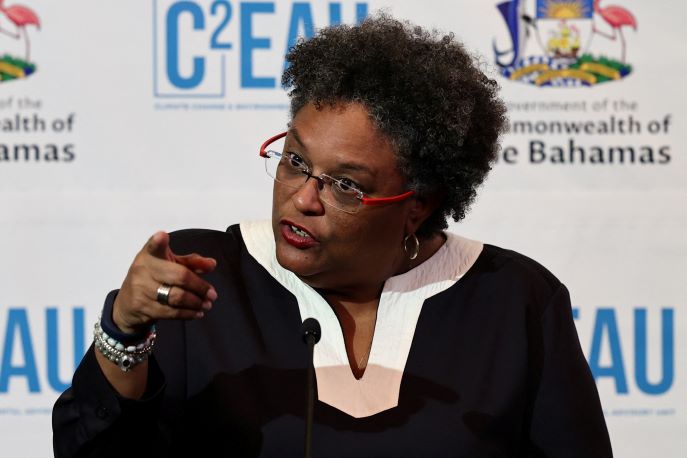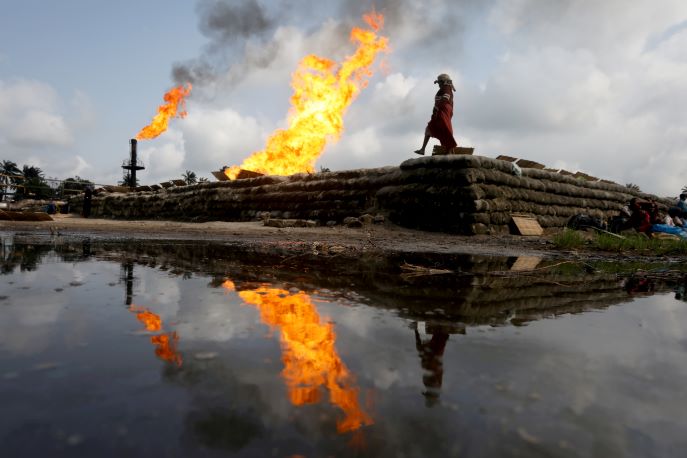Angeli Mehta reports on expectations that this year’s U.N. climate conference will come up far short of what is urgently needed
COP27 is almost upon us. Billed as Africa’s COP, the Egyptian presidency hosting this year’s United Nations global climate summit hopes it will deliver desperately needed commitments to help the continent meet its development goals and to adapt to a hotter world.
But the mood music is not promising. Any momentum from last year’s COP26 in Glasgow seems to have dissipated – with the developed world distracted by war in Ukraine and the energy crisis it has fuelled, and a further cooling in relations between the U.S. and China.
As the 2022 Emissions Gap report makes clear, opportunities to progress have been squandered, with updated national climate pledges shaving just 1% off projected emissions in 2030.
Even the much-lauded Just Energy Transition Partnership to help South Africa begin to move away from coal has yet to deliver. A mid-year analysis of adaptation finance suggested wealthy countries and multilateral institutions are on track to provide just over half of the $40 billion a year promised in Glasgow.
Africa urgently needs funds for adaptation, yet in 2019 and 2020 it got just 20% of the investment its collective nationally determined contributions (NDCs) call for. And according to the Global Center on Adaptation, more than half of adaptation finance commitments were in the form of loans. If trends continue, Africa faces a $454 billion shortfall by 2030.
African nations spend on average 9% of their budgets responding to climate disasters
The continent is responsible for less than 4% of global emissions, yet it is warming faster and the seas around its shores are rising more swiftly than global averages. Tens of millions of people on the east of the continent, in Somalia, Ethiopia and Kenya, are starving in what should have been the rainy season. It’s the fifth consecutive rainy season that has failed to arrive.
In west Africa, meanwhile, lives are being devastated by floods – made worse by deforestation and urban expansion onto flood plains.
These impacts of global warming are layered on the pain of the COVID-19 pandemic and a food and energy crisis. Millions are back in the grip of poverty.
According to Jean-Paul Adam, director for technology, climate change and natural resources management at the U.N.’s Economic Commission for Africa, African nations spend (on average) 9% of their budgets responding to climate disasters.

Then there’s debt. African debt is four times as high as countries can raise in tax revenues. A recent report from the European Network on Debt and Development suggests some small- island developing nations are allocating more than 10% of their revenues to service debt. For Cabo Verde, on Africa’s west coast, it’s 23%.
There’s no shortage of ideas of how to free up financial flows and turn that picture around. But so far there’s little tangible progress on reform of the world’s financial systems to put the planet on a more sustainable footing, and ensure that indebtedness isn’t itself a barrier to finance. Those who need to push for reform include the very countries – the G20 – that are collectively responsible for 75% of global emissions.
Speaking at the launch of UNEP’s Emissions Gap report, Inger Andersen, executive director of the UN Environment Programme, said: “There is some homework to be done in 193 capitals so that those elements of the (financial) system that was set up in 1945 can actually be reformed.” That means central bank governors and ministers of finance talking to their environment or metrology counterparts. “Unless there is a broader understanding of how, in fact, climate projections will be a brake on … reaching the Sustainable Development Goals – then indeed we will not see those (financial) reforms.”
October’s G20 meetings, and annual meetings of the World Bank and IMF delivered little.
How have we come out of the ‘annuals’ without a clear roadmap for reform of the system
“With so many warm words about the need for urgent, fundamental action, how have we come out of the ‘annuals’ (World Bank and IMF meetings) without a clear roadmap for reform of the system? Where is the political strategy?” asks Ronan Palmer, director clean economy at climate change think-tank E3G.
He expects to see some progress on recent G20 recommendations to boost the lending capacity of the multilateral development banks, especially around providing more data, but is not confident of much more.
That means waiting until next spring’s World Bank and IMF meetings ‒ too late for those now suffering.
In April, the IMF did agree to set up a resilience and sustainability trust to provide longer term “affordable” financing for climate resilience and pandemic preparedness. It will channel special drawing rights from countries who need them less to those who need them more. It was warmly welcomed by Mia Mottley, prime minister of Barbados, particularly because it recognises vulnerability as a lending criterion and offers long-term finance with no debt servicing for 10 or 12 years. Her country is the first recipient, although the trust isn’t yet fully funded.

But again, hardly swift action, given special drawing rights were authorised in 2021.
Gayle Smith, chief executive of the One Campaign, which works to end extreme poverty, told journalists in another online briefing that “what we need is the radical modernisation of these institutions to meet the transnational threats of the day”. The multiple pile-up of crises, she said, “is on a scale that's unprecedented, and this is one that is going to shape global economy for the next 20 to 30 years”.
Prime minister Mottley is pushing for such a transformation. The Bridgetown agenda, published this summer, calls for debt suspension; reforms to boost lending by $1 trillion; redirection of $100 billion of unused special drawing rights to nations who need them; new financial instruments that bring in private sector finance for the low carbon transition; and a global mechanism to raise reconstruction finance for countries faced with climate disaster.
But activists in the global south want the World Bank and IMF to go even further and cancel their countries’ debts. Sunny Morgan, co-convenor of the Debt for Climate campaign,
told journalists that what is owed should be cancelled “against the climate debt of the global north – a climate debt that has accumulated over the period since the industrial revolution”. In return, he said, nations would be able to keep fossil fuels in the ground, because they wouldn’t have to use them to pay for development.
Whether the activists can make their voices heard at COP27 remains to be seen, but the question of how to enable Africa to adapt to climate change won’t go away.
This article is part of the November 2022 issue of the Sustainable Business Review. See also:
ESG Watch: Insurers flex muscles by refusing to finance oil and gas ahead of COP27
Brand Watch: Things go badly for Coca-Cola as activists attack COP27 sponsor
Society Watch: Indigenous peoples fear being overshadowed after COP26 moment in the sun
In conversation with Elizabeth Mrema, the woman seeking a ‘Paris moment’ for nature at COP15
Brands failed to meet promises to protect forests. We can’t mess up net-zero, says Nestle ESG chief


